At-Will Employment
Maryland follows the employment-at-will doctrine, meaning either the employer or employee can terminate employment at any time, for any reason—or no reason at all. However, there are two key exceptions that can override at-will status:
· Public Policy – Employees cannot be terminated for reasons that violate a clear mandate of public policy.
· Implied Contract – Courts may find an enforceable employment contract based on:
o Provisions in an employee handbook
o Detailed oral assurances that restrict the employer’s right to terminate
Courts have ruled against employers in implied contract cases where handbooks or verbal commitments inadvertently promised job security or specific discharge procedures.
A clearly worded, conspicuous at-will disclaimer in your employee handbook can preserve your right to manage your workforce as needed—and help defeat implied contract claims.
For comprehensive training on maintaining at-will employment, visit EmployerESource and explore our training webinars. These resources offer valuable information for business owners and managers seeking to stay informed and compliant.
For any questions about at-will employment and how to preserve this relationship, please contact EmployerESource. We’re here to provide expert guidance and support.
Deductions of Wages
Under Maryland law, employers may not deduct from an employee’s wages unless the deduction meets strict legal requirements. Deductions are only allowed if they are:
· Ordered by a court – such as child support or garnishments
· Expressly authorized in writing by the employee (must be separate, specific, and signed)
· Approved by the Commissioner for full consideration (e.g., loans, advances)
· Required by law – like taxes or government regulations
Even with permission, deductions must not drop wages below minimum wage if they result from the employee's fault, unless tied to something of monetary value they received (like a loan or materials).
Our Employee Handbook includes a compliant and clearly worded policies that protects your business while keeping you in line with the law.
Contact Employeresource today to purchase a compliant Payroll Deduction Authorization Form, and reach out with any questions about the law or wage deduction practices. We’re here to help!
Final Wages
Under the Maryland law, employers are required to pay all wages due to an employee by their regular payday following termination. However, when it comes to accrued leave, an employer is not required to pay it out—but only if there is a clear, written policy in place stating the limits on that compensation, and the employee was properly notified of the policy.
That’s where EmployerESource comes in. Our Employee Handbook includes a compliant and clearly worded leave policy that protects your business while keeping you in line with the law. Without it, you could be on the hook for payouts you didn’t plan for.
Garnishments of Pay
Maryland law requires employers to promptly process earnings withholding orders or notices for child support. Upon receiving one, employers must:
· Begin deductions with the next pay period
· Send withheld amounts to the State disbursement unit within 7 business days
· May collect a $2 processing fee per deduction
Employers cannot retaliate against employees because of a withholding order — including dismissal, refusal to hire, or denying promotions.
Contact EmployerESource today or download an employee handbook with state-specific garnishment and payroll policies to ensure your business stays compliant.
Meal Periods and Break
The Healthy Retail Employee Act establishes regulations for employers in retail businesses in Maryland, particularly regarding shift breaks and employee protections. Below is a breakdown of the key provisions:
Employer Definition:
Employer: A business engaged in retail with 50+ employees for 20+ weeks in a year, or a franchise with 50+ employees across locations in Maryland.
Exemptions:
This law does not apply to:
Employees covered by a collective bargaining agreement or with shift breaks equal to or greater than those in the Act.
Employees exempt from overtime under the Fair Labor Standards Act.
Employees working in a corporate office or locations with 5 or fewer employees.
Shift Break Requirements:
For 4-6 consecutive hours of work: Employers must provide at least one 15-minute nonworking break.
For more than 6 consecutive hours: Employers must provide at least one 30-minute nonworking break.
For every additional 4 consecutive hours after 8 hours worked, employers must provide an additional 15-minute nonworking break.
The 15-minute break may be waived by written agreement if the shift is under 6 hours.
Shift Break Alternatives:
A break may be considered working if the type of work requires the employee to remain on duty during the break, but the employee is allowed to eat while working, and both the employer and employee agree in writing.
This law is designed to improve working conditions for retail employees, ensuring that employers provide adequate breaks for their employees and face penalties if they fail to comply. It emphasizes both the employee’s rights and employer’s responsibilities in maintaining a fair workplace environment.
For employers, understanding this law and ensuring compliance with its break requirements can prevent costly penalties and litigation.
For any questions or clarification regarding this law, please contact EmployerESource. We’re here to assist you and ensure compliance with all applicable regulations.
One Day of Rest
In Maryland, retail and wholesale employers must respect employees’ right to choose a day of rest, with clear guidelines on which employees qualify. Here’s what employers need to know:
Key Requirements:
· Eligible Employees: Retail employees may choose a day of rest, either Sunday or their sabbath, unless they’re managerial, professional, or part-time (working less than 25 hours a week).
· Notification: Employees must give written notice to their employer and can change their chosen day of rest with 30 days’ notice.
· Compensation for Violations: If an employer forces an employee to work on their chosen day of rest, the employee is entitled to triple their regular hourly rate for each hour worked.
· Protection Against Retaliation: Employers cannot penalize or discriminate against employees for choosing a day of rest.
Our Employee Handbook help you avoid costly fines or lawsuits. With clear procedures for both employers and employees, you’ll be able to easily manage scheduling and avoid any misunderstandings.
Stay ahead of legal requirements and keep your workplace compliant. Get your Employee Handbook from EmployerESource today!
Overtime
Under Maryland state law, most employers are required to pay non-exempt employees 1.5 times their regular rate of pay for any hours worked over 40 in a single workweek. While there are specific exceptions for certain industries and employee classifications—such as agriculture, bowling establishments, nonprofit concert venues, and select transportation roles—these exceptions are narrowly defined, and noncompliance can expose your business to significant legal risk.
To ensure you're properly classifying your employees and applying the correct overtime rules, it's essential to have clear, legally compliant policies in writing.
That’s where EmployerESource comes in. We offer customized employee handbooks that include state-specific overtime policies, helping you stay compliant. Our handbooks are built by HR professionals and aligned with both federal and state wage laws.
Salary History
Under Maryland law, employers are prohibited from:
· Retaliating against an applicant for not providing wage history or for requesting the wage range for the position they are applying for.
· Using wage history as a factor in screening applicants or determining their wages during the hiring process—unless the wage history is voluntarily provided after an initial employment offer.
Key Points Employers Need to Know:
· No Wage History during Hiring Process: You cannot ask for or rely on a candidate's wage history during the interview process or in your wage determination.
· Wage History After Offer: Once a job offer with compensation is made, you may consider the wage history voluntarily provided by the applicant if it supports a higher wage offer.
· Pay Equality: If relying on wage history, ensure it doesn’t lead to an unlawful pay disparity based on protected characteristics like gender, race, or ethnicity.
Stay ahead of legal requirements and keep your workplace compliant. Get your Employee Handbook from EmployerESource today!
Sick Leave
Maryland law sets clear guidelines for earned sick and safe leave (ESSL) that every employer must follow to ensure employee rights are respected. Here's what you need to know:
Key Legal Requirements:
1. Paid Leave Requirements:
a. Employers with 15 or more employees must provide paid earned sick and safe leave.
b. Employers with 14 or fewer employees must provide unpaid earned sick and safe leave.
2. Accrual Rates:
a. Employees accrue 1 hour of paid leave for every 30 hours worked.
b. Employers are limited to 56 hours of accrued paid leave and 80 hours of leave usage per year.
3. Leave Usage:
a. Paid leave can be used for:
i. Physical/mental illness or injury,
ii. Preventive medical care,
iii. Caring for a family member,
iv. Maternity or paternity leave,
v. Domestic violence, sexual assault, or stalking incidents.
4. Carryover Rules:
a. Employees can carry over unused sick leave, but employers may limit the carryover to 56 hours per year.
b. However, unused leave is not paid out at termination.
5. Exemptions:
a. Certain workers, like those in the construction industry or those working fewer than 12 hours a week, may be exempt.
Our Employee Handbook makes sure your company stays in full compliance with these complex regulations. With clear, easy-to-follow policies, you can avoid discrimination claims, penalties, and confusion around sick leave entitlement.
Stay compliant and protect your business. Get your Employee Handbook from EmployerESource today!
Voting Leave
Maryland law requires that employers allow up to 2 hours of paid leave on Election Day for employees who don’t have at least 2 hours of continuous off-duty time while polls are open. This ensures employees can exercise their right to vote without penalty.
Here's what employers must do:
Provide up to 2 hours of paid time off to vote,
Only if the employee doesn’t have 2 consecutive off-duty hours during polling hours,
Require proof of voting or an attempt to vote using a form from the State Board.
Don’t risk noncompliance or confusion. Our Employee Handbook from EmployerESource includes a clear, legally compliant Voting Leave Policy—ensuring your business meets its obligations.
Wage Reduction
Maryland employers are required to keep their employees informed about essential wage and payment details. Here's a breakdown of the key requirements:
Employer Responsibilities:
Notice at the Time of Hiring:
a. Employers must inform employees at the time of hiring about:
i. Rate of Pay – Clearly stating the wage the employee will earn.
ii. Regular Paydays – Informing employees about the set paydays.
iii. Leave Benefits – Including information on any leave the employee is entitled to.
Advance Notice of Changes:
b. Employers must give at least one pay period's notice if there's any change in:
i. Payday (when the employee will be paid).
ii. Wage (the rate of pay the employee will receive).
Important Clarification:
· Employers are not required to provide advance notice for wage increases. They can raise wages at any time without prior notification, as long as they comply with the other provisions.
Stay compliant and ensure transparency with your workforce. Get your Employee Handbook from EmployerESource today!

